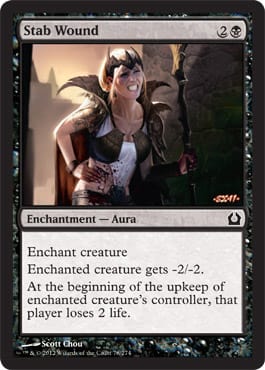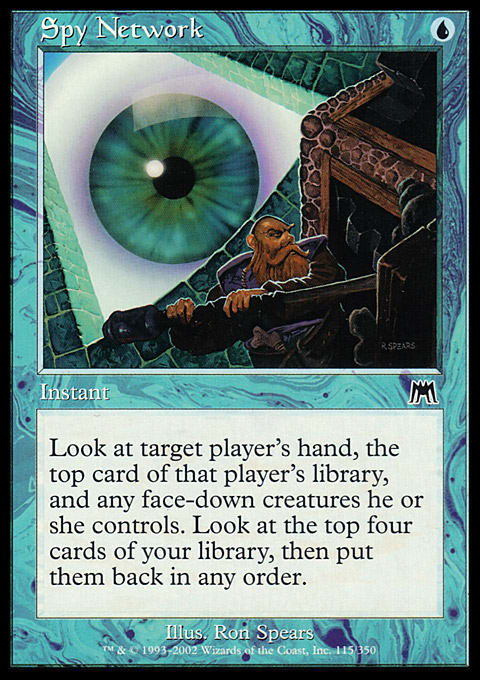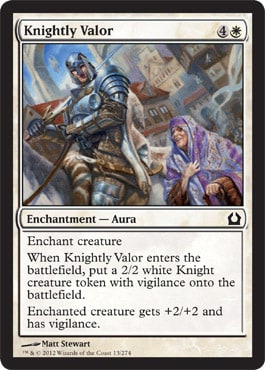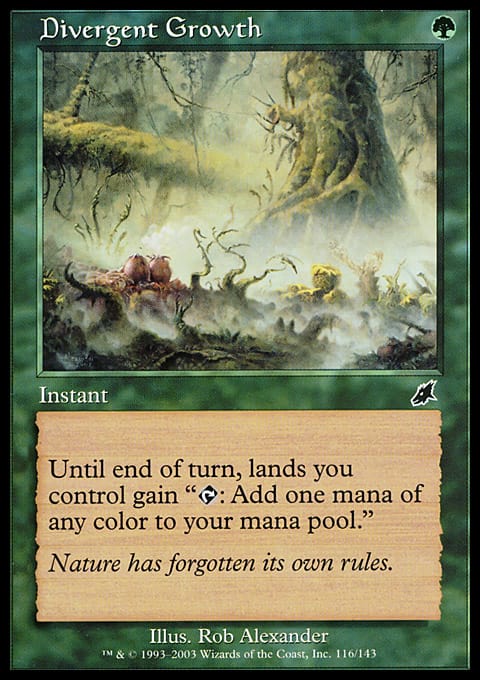- Principles concerning the distinction between right and wrong or good and bad behavior.
- Behavior as it is affected by the observation of these principles.
The American Heritage Dictionary
- The quality of being in accord with standards of right or good conduct.
- A system of ideas of right and wrong conduct: religious morality; Christian morality.
- Virtuous conduct.
- A rule or lesson in moral conduct.
You get the idea. Morality is about behaving and conducting yourself in a right and good manner as opposed to in a bad and wrong manner. The question that seems to arise frequently is: How does this apply to Magic?
Some may tell you that’s why the game has rules and rules enforcement. It has both game rules and floor rules. It even has penalties for what the rules and/or judges deem unsportsmanlike conduct. Most people seem to think that this is insufficient coverage of what determines the difference between good and bad behavior in Magic.
My friend and fellow Magic pro Jackie Lee recently was disqualified from the Pro Tour in Seattle. Afterward, she wrote an excellent article explaining what happened and her view on it. I think a big part of the problem comes from her attitude toward proper behavior in Magic, which she explained thusly:
The problem is that Magic pros are public representatives of the game, and it’s especially critical that they conduct themselves in ways that leave no doubt that their conduct is virtuous in a Magic-playing sense. The hard part seems to be in determining what counts as virtuous when playing Magic.
When Jackie was informed she was being DQ’d, the judge informed her, “You have tried to ride this line as close and tight as you could, and we have found you to be on the other side of it.” This definitely suggests that the judging community doesn’t view the rules to be as black-and-white as Jackie does. Neither does the general Magic community. While many people came out on social media to support Jackie and sympathize with her, there were probably at least as many trashing her as anything from a detestable rules lawyer to a savage cheater. Even Jackie agreed that the DQ was warranted, but in her case, that’s because her violation and punishment are outlined in specific terms in the official rules.
There's a problem when players engage in activities that aren't clearly defined as cheating but that are clearly unsporting, even if some judges might not punish them for it. In Jackie's case, even if there wasn't a specific rule dealing with her situation and even if one were to view it the way she did, there's still a problem with it ethically. She admits to seeing him change his life total, and it was perfectly obvious to her why he was doing it. He obviously wasn't forgetting about his trigger, whether he was clearly verbalizing it or not. While perhaps he should be doing a better job of verbally announcing his triggers, since she had seen clear evidence that he wasn't missing them, her behavior goes beyond simply allowing her opponent to make a mistake.
In fairness to Jackie, I don’t consider her a cheater or even a bad person in a Magic sense. She called the judge over in a game she knew she was going to lose either way (despite her opponent saying a judge wasn’t needed) and that she proceeded to be completely honest with the judge even when she realized that she wasn’t telling him something that was going to be in her favor. That all tells me she wasn’t trying to cheat.
The problem arises from the win-at-all-costs mentality that infects high-level play. I'm sure if Jackie wasn't always trying to do everything in her power to win while staying inside the rules, she wouldn't have become quite so successful. Unfortunately, this often leads players to lose sight of right and wrong, while technically leaving them inside the rules.
Ironically, this problem seems to be worse among higher levels of competition, even though I would submit this is when it’s the most critical to be setting an ethical example for the rest of the Magic community. Like most people, I consider myself to be an ethical Magic player. If anything, I have become more careful to play ethically as my career has progressed to higher levels with more at stake.
Before the Pro Tour (when Moby Dick was a minnow), judging was in its infancy, and the big tournaments being held were the wild, wild west of Magic history. While at no point in my career have I ever conducted myself in ways that I considered cheating as I was doing them, I can remember at least one example of something I did back then that I now believe to not be proper behavior. When attending $1,000 tournaments with hundreds of players, I would typically wait for my opponent to sit down first. Then, I would stand nearby, hoping that while he was shuffling with no opponent across from him, I would catch a glimpse of what archetype he was playing.
At the time, I just viewed my actions as smart. Among other things, I generally felt that outside of messing around with your deck, cheating was something that only happened after the match started. Like Jackie, I was young, and like Jackie, I usually viewed things as either legal or not. Part of the problem with this thinking is how often the rules change. In Jackie's case, I think what she did shouldn't be okay whether it's legal or not.
With the advent of the Pro Tour, my awareness of the concepts of right and wrong in Magic began to evolve. Now there were official-looking judges in uniforms, very large sums of money at stake, and official coverage of the event for posterity. Now I started to think not just about how I viewed my actions, but about how others would view them. It was no longer enough for an action to meet the simple standard of “not against the rules”. Now especially, I wanted to ensure my actions wouldn’t and couldn’t be viewed by others as shady or unethical.
Playing the game I loved at a high level for thousands of dollars seemed to be a special privilege, and I wanted to treat the game accordingly. As I quickly became successful and people started to recognize me and my name, the importance of playing ethically seemed even more urgent. I wanted a reputation for excellence and skill, not of questionable behavior or conduct.
Sadly, over the years, I've been constantly amazed by how many people don't share my views on this matter. I don't just mean famous and blatant cheaters like Mike Long and Trey Van Cleave either. I remember watching the Top 8 Draft at Grand Prix: Montreal when the format was Rochester Draft. After the player next to Peter Szigeti drafted the card he wanted, Peter drafted his next card with just his middle finger. Even if Peter could get away with doing this and not be penalized, why on earth would he think this was a good idea?
Unfortunately, while many players view being a professional Magic player as a privilege and honor that comes with the responsibility of setting an example of integrity, many others apparently do not. The guidelines used to elect members of the Pro Tour Hall of Fame reflect Wizards of the Coast’s understanding of the importance of integrity and sportsmanship to the game. Wizards describes the criteria for determining who will be enshrined as:
- Player's performances,
- Playing ability,
- Integrity,
- Sportsmanship, and
- Contributions to the game in general.
Hall of Fame members are described by Wizards as “significant and influential competitors of the game.” While I think any pro is significant and influential, I'll admit that the Hall of Fame has also influenced how I view playing with integrity. During the debate of who should be on the first ballot, it was pointed out by many people that Mike Long had the stats and was a significant and influential competitor. This did not go over well with many voters. The backlash to those advocating for his inclusion was so strong that not only did Mike not make it into the Hall, but Alan Comer did. Alan is kind of like the “anti-Mike Long.” Allow me to explain.
Whenever I played Mike in a Pro Tour match, he would stop at nothing to gain an advantage. Without even going into the ways he’s cheated against me, I’ll say he also was just a massive jerk to me while we played. He would constantly browbeat me and verbally harass me in hopes of upsetting me and throwing me off my game. I remember playing him on camera in the Top 8 of Pro Tour: Paris, and he was being so obnoxious that I told him to “cut the shit.” Naturally, the horrified judges made sure to chastise me, since I had sworn on camera. While I agree that using that kind of language isn’t how I want to represent the game, I was dismayed by how much the judges failed to control Mike’s behavior. For those not familiar with that PT, Mike was also caught on camera playing two lands in one turn in the Top 8 on his way to winning the event.
Alan, on the other hand, is a completely different story. My most telling memory of playing Alan was in the last round of a Pro Tour when neither of us was going to make the Top 8, and we were just jockeying for how much money we were going to win. Before we started to play, Alan offered me a draw. I declined. Alan won Game 1, and he repeated his offer. Not being a total moron, I accepted. Some may say Alan was so nice to me just because we're friends. I would counter by saying that Alan and I are friends because he was so nice to me.
While Alan’s five PT Top 8s and 192 Pro Points would probably make him a shoe-in on recent HoF ballots, his playing accomplishments weren’t obviously among the five best on that first-ever ballot. Jon Finkel had eleven Top 8s, and I had eight. Tommi Hovi had won two Pro Tours. Olle Rade had been the first ever Player of the Year. Rob Dougherty and Dave Humpherys also had five Top 8s, but they had significantly more Pro Points than Alan. Rob and Dave ended up having to wait for the second ballot to be enshrined, while Alan joined us in the first class. That’s largely because the discussion of Mike’s candidacy had drawn voters’ attention to the issue of sportsmanship. After the four most obvious candidates based on their accomplishments made it onto most ballots, Alan stood out for his impressive sportsmanship. Alan’s gesture to me was just an example of how he always conducts himself as a Magic player. He may not always give away games, but he is always much more considerate to his opponents than he actually needs to be.
When I was inducted, it was clear to me that being voted in was partly in recognition of the fact that I played with integrity. Rather than rest on my laurels, this made me feel that it was more important than ever to represent the game with integrity. While all pros are representatives of the game, HoFers are special ambassadors. Every time I find myself in a situation in which I have to make a choice about how to conduct myself, it's very easy for me now. How do I want others to view me? What kind of influence on other players do I want to be? How would I feel if the whole world knew about what I was considering doing? If I would be embarrassed to have other players know about what I did, I won't do it. It's as simple as that.
It should be easy for you, too. No one play or one game or one match or even one tournament is worth sacrificing your integrity as a Magic player. If you don’t agree, shame on you. While Magic judges do their best to stop unsportsmanlike conduct, it needs to start with us, the players. Play with integrity, and pressure others to do the same. Let’s have a Magic community we can all be proud to be a part of.

























